Barrett-Jackson and SEMA have pushed Arizona to revise a key motor vehicle statute, which now will allow owners, restorers and repairers of pre-1981 vehicles to remove and reattach VIN plates legally, which previously was a felony subject to forfeiting the vehicle, and possible fines and jail time.
Arizona Gov. Doug Ducey has signed the legislation (H.B. 2480) into law, removing the threat against those who remove and replace VIN (vehicle identification number) tags in the course of repair or restoration, or who unwittingly own vehicles in which the tags previously were reattached.
“The point is that by statute, until right now, every one of those people was subject to a felony in Arizona, which would put your car at risk,” said Barrett-Jackson president Steve Davis, who was involved in getting the law changed.
“It was critical that this was passed, not just for Barrett-Jackson but for the hobby. This probably is the most significant collector car legislation in many decades. Our hope is that the other states will use this as a precedent-setting moment.”
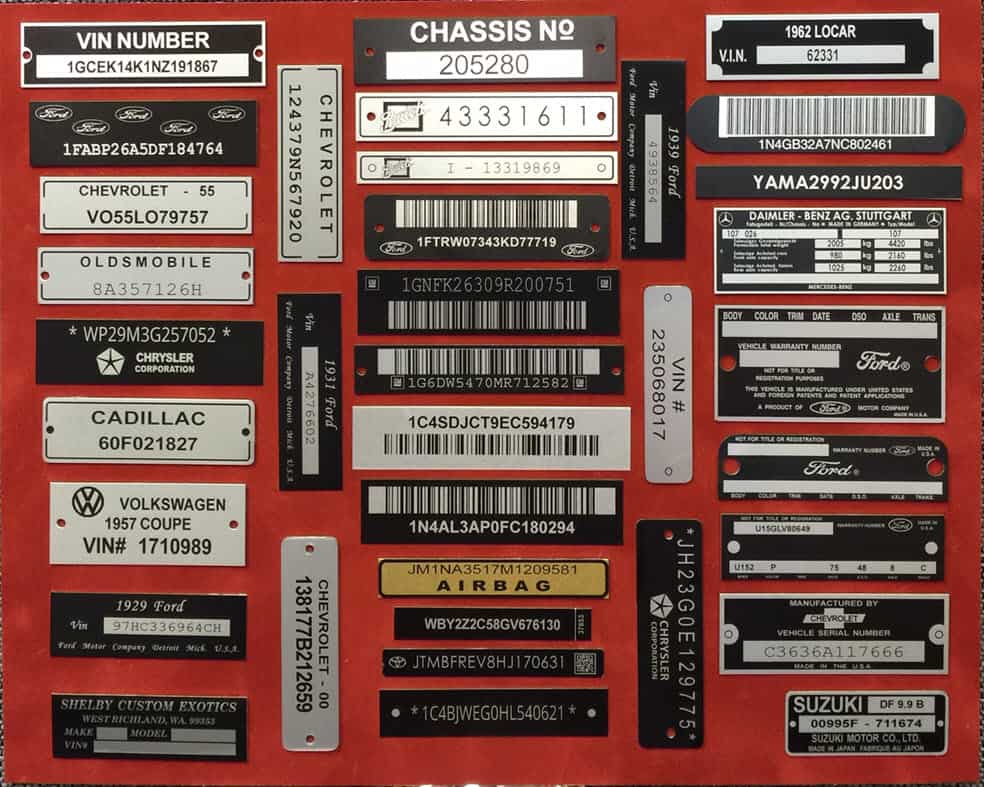
At least one other state has taken similar action. Kansas lawmakers recently passed and sent to the governor for approval legislation to allow VIN reattachments.
The Kansas legislation was prompted by a bad situation created by the existing law. A Kansas man in 2017 purchased a restored 1959 Chevrolet Corvette in Indiana, but when he attempted to register the car in his home state, the highway patrol determined that the dashboard VIN had been removed and reattached. They seized the car as “contraband.”
According to Kansas law, the Corvette would have to be destroyed. There was no exception for someone who purchased a vehicle not knowing about the VIN issue. Apparently, the VIN had been removed years earlier during restoration and reattached using new rivets.
The Corvette has been sitting in a Topeka impound lot ever since as the owner pleaded his case in state court. If the new legislature becomes law, as is expected, he should be able to get his car back and register it lawfully.
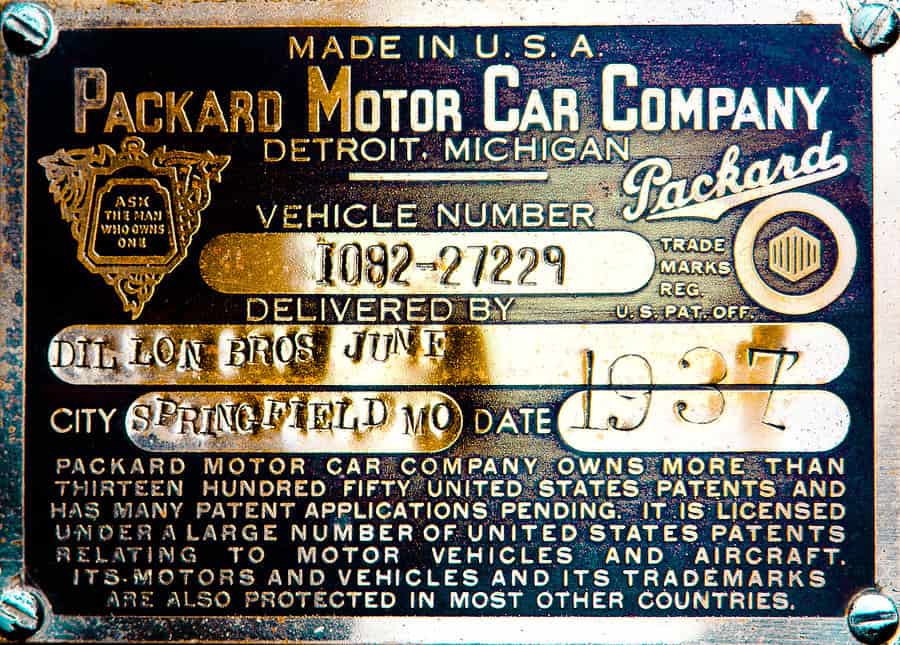
Arizona, where Barrett-Jackson is headquartered, had a similar law on the books, applying a Class 5 felony for VIN reattachment without exceptions for honest repair or restoration. The new language inserted into the law allows for such work:
HB 2480 “exempts a person who removes and reinstalls a manufacturer’s serial or identification number from a motor vehicle manufactured before 1981 if the removal and reinstallation are reasonably necessary for repair or restoration,” the legislation says, and it exempts the vehicle from being seized as contraband.
Exceptions would be in effect for vehicles known to be stolen or if the VIN was changed in order to fraudulently misrepresent a vehicle.
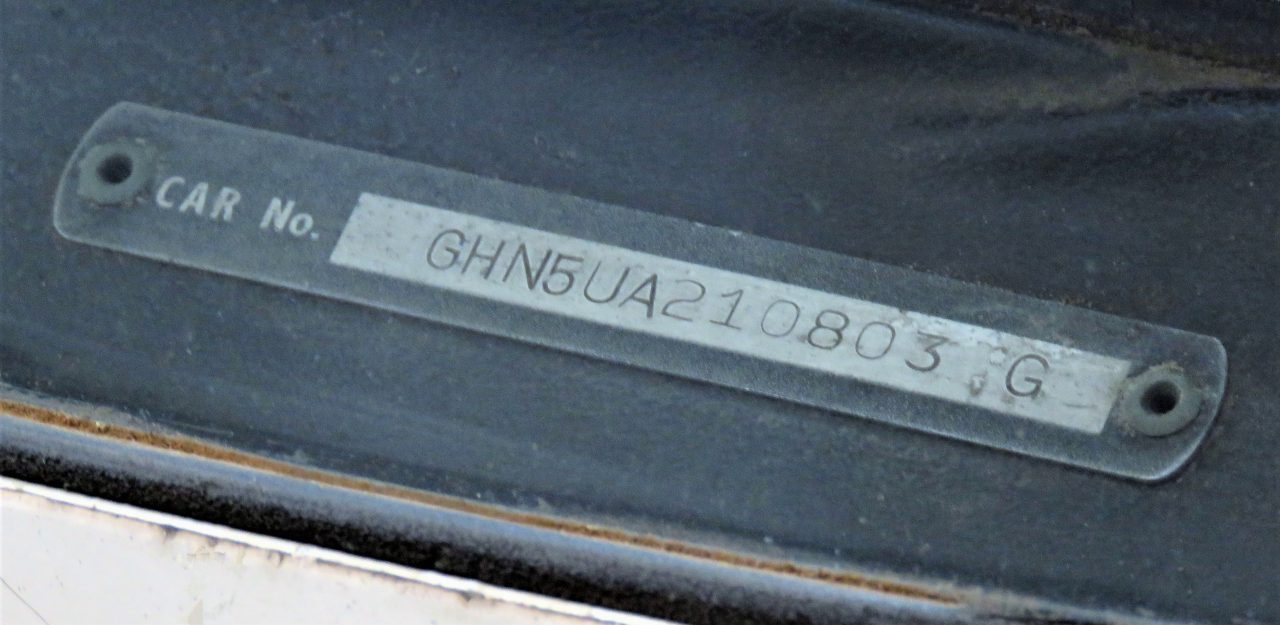
Craig Jackson, the chairman and chief executive of Barrett-Jackson, noted that the fraud issues that originally prompted the draconian VIN laws are outmoded, as experts and professionals have developed enhanced ways to authenticate vehicles than merely relying on VIN plates.
“The intent (of VIN laws) is for fraud and stealing cars, not for a guy restoring his car,” Jackson said.
Davis explained why only pre-1981 vehicles are exempted in the revised Arizona regulation.
“Primary, we used ‘81 as a cutoff due to the fact that in ’81, the 17-digit VIN became the universal standard and the placement and attachment were not random, as is the case with the vintage vehicles,” he said.
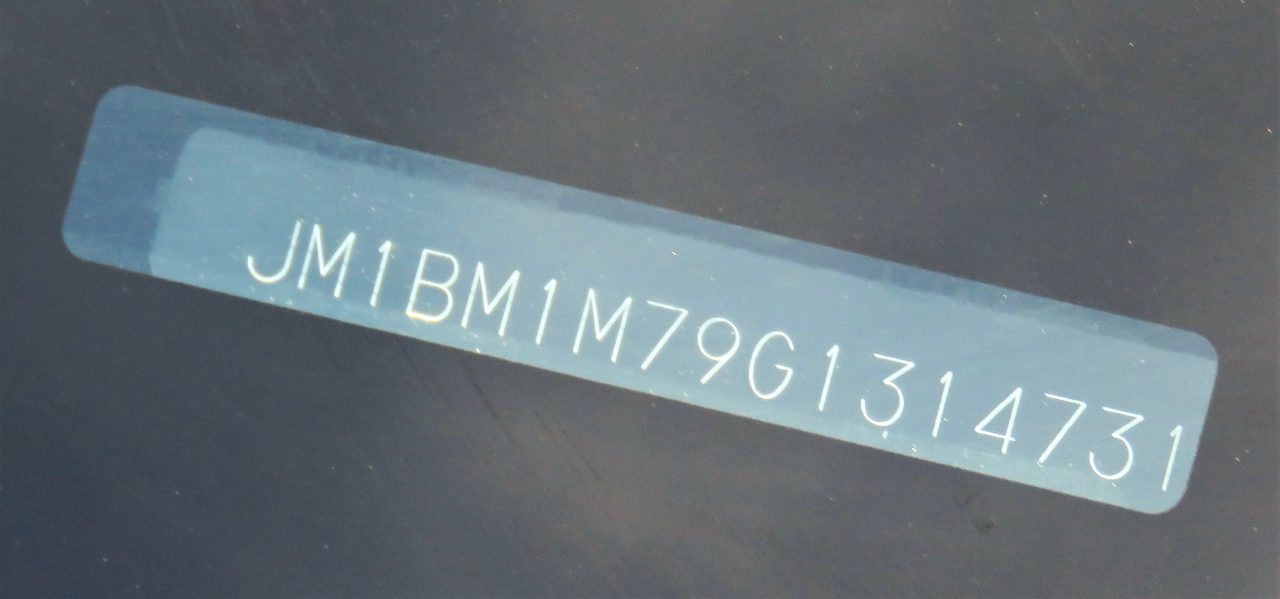
“The vehicles undergoing restoration that we wanted to focus on were vintage vehicles that have a multitude of options on the location, placement, type of VIN plate, attachment hardware, serial number, engine number, chassis number, etc.
“By ’81, the VIN plates/tags were attached in a way that made them very difficult to remove.”
For those engaged in fixing or restoring pre-1981 collector cars, the new law is a godsend, allowing them to proceed without fear of running afoul of the law, Davis noted.
“This was critical and absolutely imperative that this law got changed, and this was really one of those monumental moments, and that’s why we’re proud to be in the forefront of this thing,” he said. “Usually, California is at the forefront, but we’re making Arizona the tip of the spear now.”
Davis noted that federal law already “carves out” repairs as exempt from VIN violations, although the Arizona law now adds restorations to the mix. Nationally, states vary in their approaches to VIN laws, and it is hoped the Arizona language will help standardize laws across the country.
“That ripple effect is what we were hoping for,” Davis said. “We want legitimate people with legitimate cars to be able to legitimately restore their cars, take their VIN off and put it back on again without committing a felony. It’s that simple.”



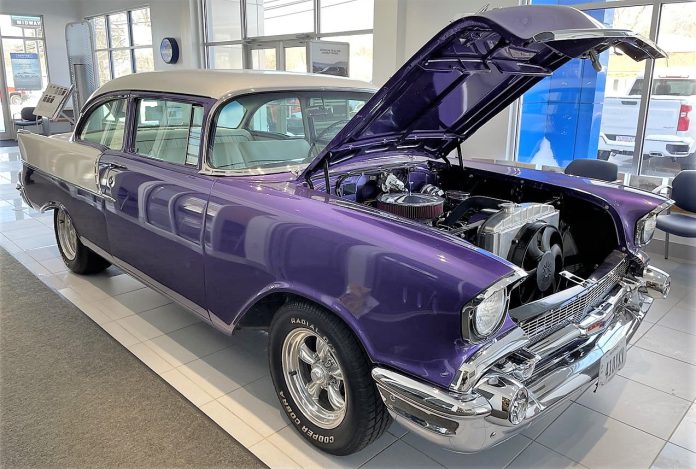


Craig Jackson has been allowing vin tag removal at his auctions for quite some time.
Is he somehow now hoping to put a feather in his self proclaimed hat. I’m sorry the man is self serving. These are kind words. His auctions mean one thing to him money in his pocket! Let’s not be fooled. The KOOLAID is not that sweet Mr. Jackson.
About as greedy as Richard Rawlings you might say….
WoW–These comments from Minnie & Dan—seem a little over the top–OK–you think you don’t like Craig Jackson & or Richard Rawlings– This article is about changing a law–Not about getting personal–
Congratulations Craig and Steve. With the value of Collector cars ever increasing, the percentage cost of Bonding a vin was getting very expensive. Very proactive for creating a standard procedure for all in the Restoration game
Now we need to start working on those mattress tag removal laws
Sorry, Craig. But it is so obviously an open door to ”good old-fashioned fraud”. Solidly putting back in place Buyer Beware ethics. A move in the wrong direction, Pal.
For those of you for making negative comments, you need to pull your head out of a dark place! The punishment doesn’t fit the crime for people who are restoring vehicles and commonsense should overrule the code of conduct no matter who is leading the charge.